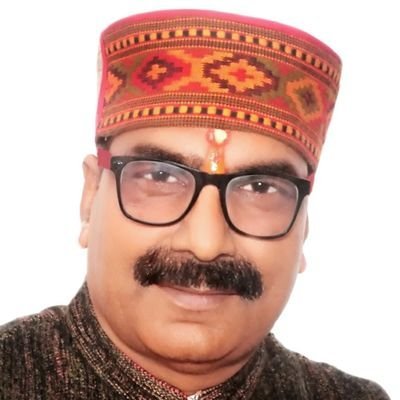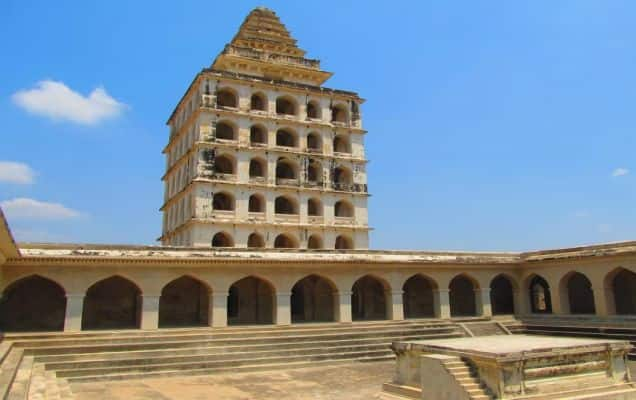The Prime Minister. Shri Narendra Modi addressed the 75th Amrut Mahotsav of Shree Swaminarayan Gurukul Rajkot Sansthan via video conferencing today.
Addressing the gathering, the Prime Minister congratulated everyone associated with Shree Swaminarayan Gurukul Rajkot Sansthan on the completion of 75 years and praised the efforts of Shastriji Maharaj Shri Dharmajivandasji Swami for his tremendous efforts in this journey. The Prime Minister remarked that by just remembering the name of Bhagwan Shri Swami Narayan, one could experience new consciousness.
The Prime Minister noted the coincidence of the auspicious event taking place in the period of Amrit Kaal. The Prime Minister termed it a happy occasion as Indian tradition has been energised by such coincidences throughout history. The Prime Minister recounted these confluences in history i.e confluences of duty and hard work, culture and dedication, spirituality and modernity. The Prime Minister lamented the neglect of education and the duty to revive the glory of the ancient Indian education system in the immediate aftermath of independence. Where earlier governments faltered, the Prime Minister said, nationals saints and Acharyas took up the challenge. “Swaminarayan Gurukul is the live example of this ‘Suyog’” the Prime Minister said. This institution was developed on the foundation of the ideals of the freedom movement.
“Spreading true knowledge is the most important task, and this has been India’s devotion towards knowledge and education in the world which has established the roots of Indian civilisation ”, the Prime Minister remarked. The Prime Minister informed that even though the Gurukul Vidya Pratishthanam began with only seven students in Rajkot, it has forty branches worldwide today which attracts thousands of students from all over the world. He further added that in the last 75 years, Gurukul has developed the minds and hearts of the students with good thoughts and values, so that their overall development can be done. “From dedicated students in the field of spirituality to scientists in ISRO and BARC, the tradition of Gurukul has nourished every field of the country”, he said. The Prime Minister highlighted the practice of Gurukul where a fee of only one rupee is charged to poor students thereby making it easier for them to get an education.
Referring to the Indian tradition of treating knowledge as the highest pursuit of life, the Prime Minister said that when other parts of the world were identified with their ruling dynasties, Indian identity was linked with its gurukuls. “Our Gurukuls have been representing equity, equality, care and a sense of service for centuries”, he added. He remembered Nalanda and Takshshila as synonyms for India’s ancient glory. “Discovery and research were an integral part of the Indian lifestyle. From self-discovery to divinity, ayurveda to aadhyatm (spirituality), social science to solar science, from Math to metallurgy and from zero to infinity, research and new conclusions were drawn in every field. “India, in that dark age, gave humanity rays of light that paved the way for the world's journey of modern science”, he added. The Prime Minister also highlighted the gender equality and sensitivity of the Indian ancient gurukul system and lauded Swaminarayan Gurukul for starting ‘Kanya Gurukul’.
The Prime Minister emphasised the role of the education system and educational institutions in shaping the bright future of India and said that the country is moving at a fast pace to develop the education infrastructure and policies in the country at every level in the Azadi Ka Amrit Kaal. The Prime Minister informed that the country has seen an increase in the number of IITs, IIITs, IIMs and AIIMSs in the country and the number of medical colleges saw an increase of sixty-five per cent when compared to the time before 2014. He further added that with the New Educational Policy, the country is preparing an educational system that is futuristic. As a result, the new generations that will get their education in the newer system will make for ideal citizens of the country.
The Prime Minister emphasised the importance of the saints in the journey of the next 25 years. “Today India’s resolutions are new and also the efforts to realise them. Today the country is moving with a vision of Digital India, Aatmnirbhar Bharat, Vocal for Local, 75 Amrit Sarovars in every district and Ek Bharat Shreshtha Bharat. ‘Sabka Prayas (everyone’s effort) in these projects of social transformation and social reform will impact the lives of crores of people. The Prime Minister also urged the students of Gurukul to travel to Northeast India for a minimum of 15 days and connect with the people to further strengthen the nation. He also touched upon topics like Beti Bachao and environment protection and urged people to come together to strengthen Ek Bharat Shreshtha Bharat. “I am sure institutions like Swaminarayan Gurukul Vidya Pratishthanam will continue to give strength to this journey of India’s resolutions”, the Prime Minister concluded.
Background
Shree Swaminarayan Gurukul Rajkot Sansthan was established at Rajkot in 1948 by Gurudev Shastriji Maharaj Shri Dharmajivandasji Swami. The Sansthan has expanded and currently has more than 40 branches worldwide, providing facilities for school, undergraduate and postgraduate education to more than 25,000 students.
श्री स्वामीनारायण गुरुकुल राजकोट की यात्रा के 75 वर्ष, ऐसे कालखंड में पूरे हो रहे हैं, जब देश अपनी आज़ादी के 75 वर्ष मना रहा है: PM @narendramodi pic.twitter.com/v851udnOFz
— PMO India (@PMOIndia) December 24, 2022
पिछले 75 वर्षों में गुरुकुल ने छात्रों के मन-मस्तिष्क को अच्छे विचारों और मूल्यों से सींचा है, ताकि उनका समग्र विकास हो सके: PM @narendramodi pic.twitter.com/VR2CFjWJk5
— PMO India (@PMOIndia) December 24, 2022
जिस कालखंड में दुनिया के दूसरे देशों की पहचान वहाँ के राज्यों और राजकुलों से होती थी, तब भारत को, भारतभूमि के गुरुकुलों से जाना जाता था।
— PMO India (@PMOIndia) December 24, 2022
गुरुकुल यानी, गुरु का कुल, ज्ञान का कुल! pic.twitter.com/3Q5Y9bwynS
शून्य से अनंत तक, हमने हर क्षेत्र में शोध किए, नए निष्कर्ष निकाले: PM @narendramodi pic.twitter.com/VjK5zrGPD6
— PMO India (@PMOIndia) December 24, 2022
मुझे खुशी है कि स्वामीनारायण गुरुकुल इस पुरातन परंपरा को, आधुनिक भारत को आगे बढ़ाने के लिए ‘कन्या गुरुकुल’ की शुरुआत कर रहा है: PM @narendramodi pic.twitter.com/tHCq8bMSda
— PMO India (@PMOIndia) December 24, 2022
आजादी के इस अमृतकाल में देश, एजुकेशन इनफ्रास्ट्रक्चर हो या एजुकेशन पॉलिसी, हर स्तर पर काम कर रहा है। pic.twitter.com/p05A2wHZsW
— PMO India (@PMOIndia) December 24, 2022

























